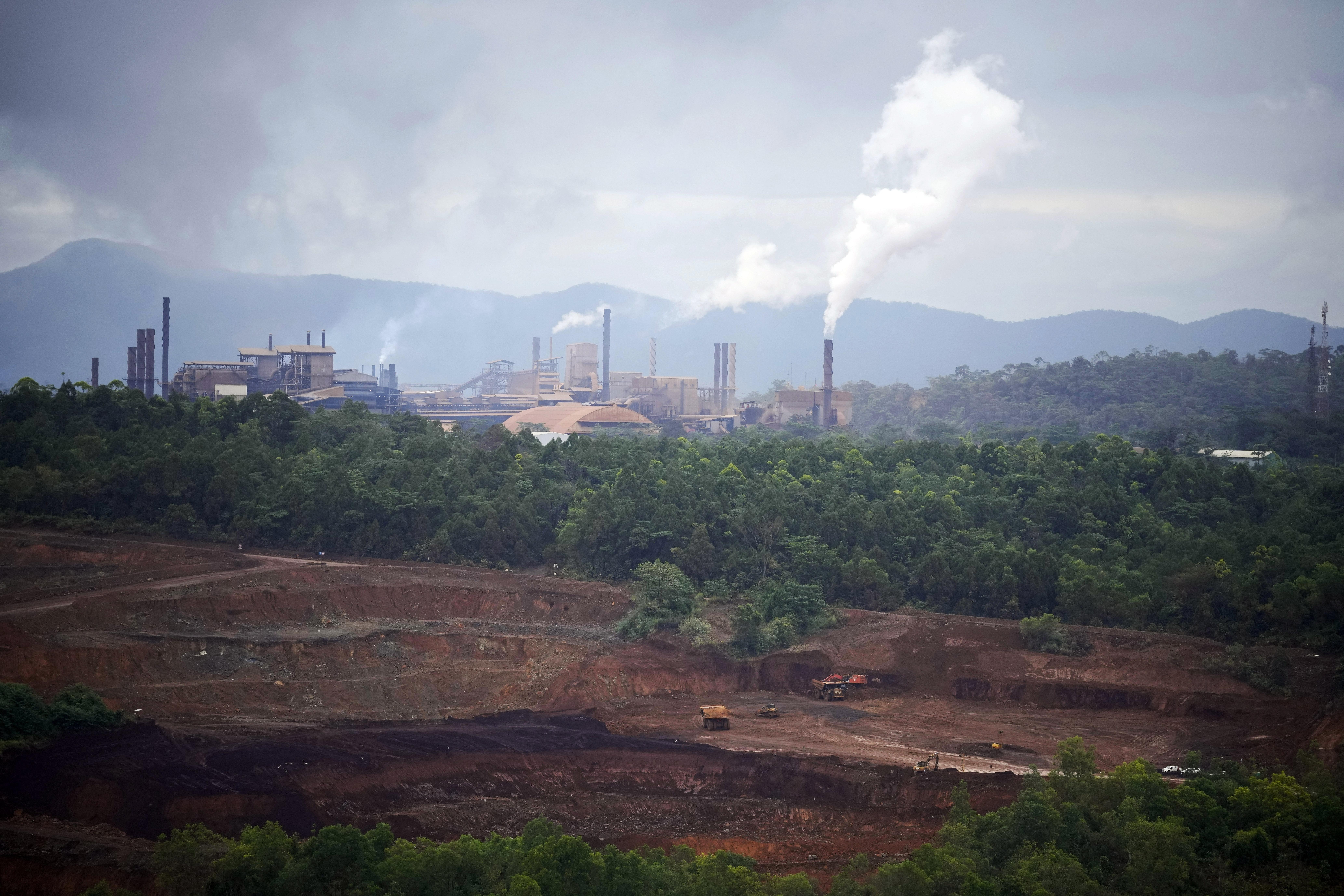 Steam rises from PT Vale Indonesia's nickel processing plant in Sorowako, South Sulawesi, Indonesia, Sept 12, 2023. (PHOTO / AP)
Steam rises from PT Vale Indonesia's nickel processing plant in Sorowako, South Sulawesi, Indonesia, Sept 12, 2023. (PHOTO / AP)
WASHINGTON - The International Monetary Fund (IMF) said on Monday that the private sector will need to make a major contribution toward the large climate investment needs for emerging markets and developing economies.
Achieving the transition to net-zero emissions by 2050 requires substantial climate mitigation investment in emerging markets and developing economies, which currently emit around two-thirds of greenhouse gases, the IMF said in a blog, as it released a chapter of the latest Global Financial Stability Report.
READ MORE: IMF: Climate change may increase conflict deaths
These countries will need about $2 trillion annually by 2030 to reach that ambitious goal, according to the International Energy Agency. This is a fivefold increase from the current 400 billion dollars of climate investments planned over the next seven years, the report noted.
A pragmatic and equitable proposal calls for an international carbon price floor, differentiated across countries at different levels of economic development, the IMF report said, adding that the associated carbon revenues could be partly shared across countries to facilitate the green transition
Projecting that growth in public investment will be limited, the IMF said the private sector will need to supply about 80 percent of the required investment, and this share rises to 90 percent when China is excluded.
The report noted that a broad mix of policies is needed to create an attractive investment environment and unlock the necessary private climate finance in emerging markets and developing economies.
READ MORE: IMF official: China's fiscal policy helps fight climate change
In another blog also published on Monday, the IMF said countries must contain global warming while keeping debt in check, arguing that managing the climate transition calls for "a fiscal balancing act" with the right mix of policies.
Governments face "a policy trilemma" between achieving climate goals, fiscal sustainability, and political feasibility, the IMF said as it published a chapter of the latest Fiscal Monitor, calling on governments to take bold, swift, and coordinated action, and find the optimal mix of both revenue- and spending-based mitigation measures.
While no single measure can fully deliver the climate goals, carbon pricing is necessary but not always sufficient to reduce emissions, the report noted.
READ MORE: IMF urges pact to boost resource quota, global economy
A pragmatic and equitable proposal calls for an international carbon price floor, differentiated across countries at different levels of economic development, the report said, adding that the associated carbon revenues could be partly shared across countries to facilitate the green transition.
A just transition should also include robust fiscal transfers to vulnerable households, workers, and communities, it added.
ALSO READ: IMF worried about 'material' impact of climate change
The IMF also urged policymakers to enhance spending efficiency and build greater capacity for raising tax revenues by broadening the tax base and improving fiscal institutions, in order to navigate fiscal challenges.
"No single country can solve the climate threat alone. Nor can the public sector act by itself. The private sector has to fulfill the bulk of the climate financing needs," the IMF said.


